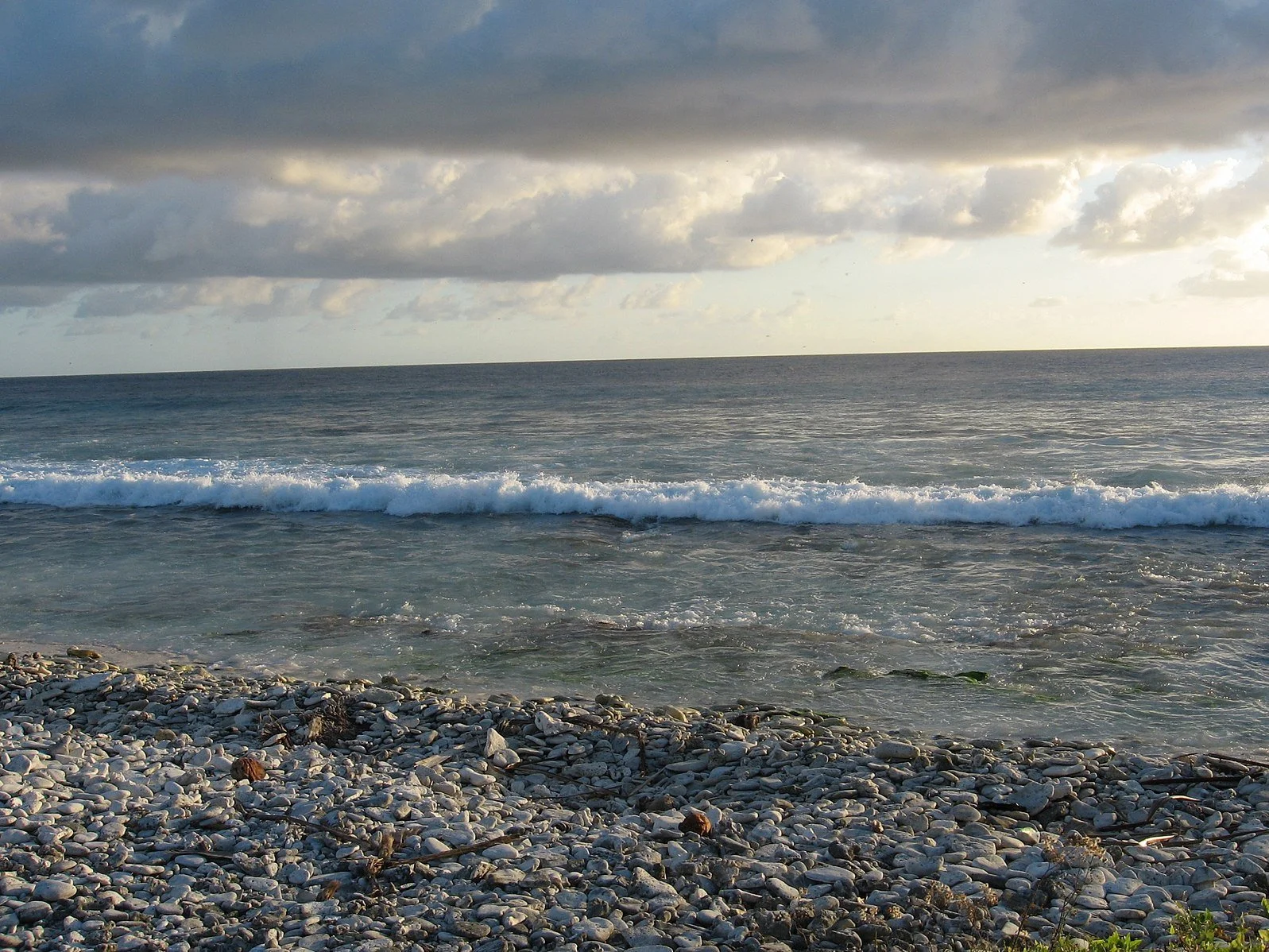Rising Waters, Rising Voices: The Pacific’s Role in Global Climate Diplomacy
The Pacific Island nations are at the forefront of the global climate crisis. Papua New Guinea’s Carteret Islands have produced the world’s first environmental refugees as a consequence of rising sea levels. The Marshall Islands and Kiribati are grappling with saltwater incursion, which contaminates freshwater supplies and disrupts agriculture. More broadly, biodiversity loss and ocean acidification pose severe threats to marine ecosystems, which are crucial for the livelihoods of many Pacific communities. The economic, social, and cultural consequences of climate change in the region are profound, necessitating urgent and sustained action. Despite their small size and limited resources, Pacific nations have emerged as prominent voices in international climate diplomacy, helping to shape global agreements and push for more ambitious climate commitments. Still, challenges such as diplomatic fragmentation, bureaucratic hurdles, and competing national interests continue to complicate the maintenance of a strong and united Pacific voice in climate negotiations.
Pacific Island nations have successfully introduced initiatives that extend their influence far beyond their geographic and economic size. The Marshall Islands’ Net-Zero Commitment made it the first Pacific nation to pledge net-zero emissions by 2050, setting an ambitious precedent for other small island states and reinforcing the moral imperative for stronger global commitments. In addition to its national pledge, the Marshall Islands founded the High Ambition Coalition, which played a pivotal role in establishing the 1.5°C target and the five-year review mechanism within the Paris Agreement. Further, Fiji’s presidency of COP23 led to the introduction of the Talanoa Dialogue, a platform designed to foster inclusive and solutions-oriented discussions in climate negotiations. These initiatives illustrate how Pacific nations have positioned themselves as key architects of global climate policy, using diplomacy, strategic alliances, and leadership to push for meaningful change.
Building on their frontline role in the climate crisis, Pacific nations have maximised their influence in global climate negotiations by forming and participating in key coalitions within the United Nations Framework Convention on Climate Change (UNFCCC). The Alliance of Small Island States (AOSIS), which includes all fourteen Pacific Island countries, played a significant role in shaping the Kyoto Protocol and the Paris Agreement. Some Pacific states, including Tuvalu, Solomon Islands, Kiribati, and Vanuatu, also engage through the Least Developed Countries (LDC) coalition, advocating for stronger commitments from wealthier nations to act in accordance with their responsibility for contributing to the global issue. Meanwhile, Papua New Guinea has led the Coalition for Rainforest Nations (CfRN), instrumental in establishing the Reducing Emissions from Deforestation and Forest Degradation (REDD+) program to secure financial incentives for forest conservation. Beyond these, Kiribati, as chair of the 2010 Climate Vulnerable Forum, successfully united Pacific states and their major development partners in a conference that culminated in the signing of the Ambo Declaration. Yet dissatisfaction with traditional blocs – often dominated by tropical rainforest, harbour, or oil-producing states – led to the later creation of the Pacific Small Island Developing States (PSIDS) and the Coalition of Atoll Nations, which more directly represent coral atoll-specific challenges. By working together in such coalitions, Pacific nations have amplified their voices in the UNFCCC and on the world stage, pushing for legally binding commitments and greater climate action.
However, Pacific nations face several challenges in climate negotiations, one of the most significant being diplomatic fragmentation. While all fourteen Pacific Island nations are members of AOSIS and generally align on core climate issues, some may also pursue alternative alliances that reflect distinct national priorities. For instance, Papua New Guinea's leadership in establishing the REDD+ allowed it to champion forest conservation strategies, but its decision to break ranks with AOSIS at COP15 drew strong criticism from Tuvalu and highlighted the tensions that can arise when Pacific nations fail to speak with a singular voice. Even though all Pacific Island countries face the existential threats of rising sea levels, extreme weather events, and the degradation of marine ecosystems, economic and political priorities may still diverge. In addition to their membership in AOSIS, countries like Tuvalu, Solomon Islands, Kiribati, and Vanuatu also participate in the Least Developed Countries (LDC) group. While AOSIS emphasizes ambitious emissions reductions, the LDC coalition focuses on securing adaptation support and capacity-building assistance. These overlapping memberships give Pacific nations multiple platforms to voice their concerns, but they can also make it more difficult to maintain a unified regional position in international negotiations.
Beyond diplomatic fragmentation, Pacific nations also face structural and logistical barriers in participating effectively in climate negotiations. The UNFCCC process is highly bureaucratic, requiring extensive resources, technical expertise, and sustained diplomatic engagement. With small populations and limited financial means, many Pacific nations struggle to send large delegations to international climate conferences. While participation in coalitions within the UNFCCC has helped to amplify their voices and stretch limited capacities, the reality remains that the high costs of travel, accommodation, and expert legal or scientific advisors place them at a disadvantage when negotiating alongside wealthier, more powerful states. Increasingly, Pacific coordination outside of the UNFCCC has provided a more effective path for influence. As Foreign Affairs Minister of the Marshall Islands, Tony de Brum, noted “Small Pacific states sometimes find other avenues much easier to engage with, because of the practical and psychological barriers to accessing the United Nations talks.”
Despite notable successes in climate diplomacy, Pacific nations still face the critical challenge of translating global commitments into tangible action that directly supports their communities and enhances long-term resilience. Looking ahead, they must continue to strengthen their regional alliances while navigating the increasingly fragmented and complex international climate forums. Their leadership roles in groups such as AOSIS and the CfRN have provided valuable platforms to influence global climate policy, with these coalitions being instrumental in pushing for ambitious targets in agreements like the Kyoto Protocol and Paris Agreement. However, given the broad spectrum of perspectives, concerns, and demands within these coalitions, Pacific nations must also explore alternative diplomatic strategies to sustain their influence. Expanding advocacy efforts beyond the UNFCCC to other international mechanisms could be crucial for securing stronger climate commitments. One potential avenue is increasing engagement with the United Nations Security Council (UNSC), where climate-induced displacement is becoming a pressing issue. By emphasising the links between climate change and national security – particularly with the displacement of populations from low-lying regions – Pacific nations can work to elevate climate action within the global security agenda. As frontline victims of climate change, they possess significant moral and political leverage, which enables them to pressure larger, more resourceful nations into taking stronger and more robust action. By strategically aligning with international security discussions and continuing to lead in global climate diplomacy, Pacific nations can ensure that their concerns are not only heard but also addressed with the urgency that their situation demands.
Ultimately, the Pacific’s fight against climate change is about more than just policy – it's about survival. As global temperatures continue to rise and climate impacts intensify, the world must recognise the urgency of the Pacific’s plight and take immediate, tangible action to support their resilience. The Pacific Islands have already demonstrated that they are not passive victims but powerful agents of change in the fight for climate justice. Now, the international community must match their determination with the same level of commitment and energy to ensure that these nations have a fighting chance to secure their future.
Image courtesy of Vladimir Lysenko via Wikimedia Commons, ©2007. Some rights reserved.
The views and opinions expressed in this article are those of the author and do not necessarily reflect those of the wider St. Andrews Foreign Affairs Review team.



